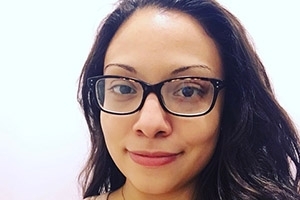Communications
Student Covers the Human Impact of Ending TPS for Salvadorans

The impact on Salvadoran families from President Donald Trump's decision to end Temporary Protective Status for Salvadorans can be glimpsed through reporting by American University School of Communication (SOC) student Ambar Pardilla for NBC4. Read the article: 'This Is Our Home': DC-Area Immigrants Worry Ahead of Temporary Protected Status Decision
Pardilla, who will receive her BA in Journalism in May, developed a piece focusing on families in the DC metropolitan area, which has 32,000 TPS holders from El Salvador, for professor Jane Hall's Advanced Reporting class as part of a final project, which included graphics, photos and an audio recording.
"[Hall] encouraged us to try to publish our pieces outside of class and while I was reporting the story, I told my internship supervisor at NBC4 about it and she told me that she would be happy to publish it," she explained. Pardilla had been working at NBC4 on an SOC Dean's Internship for the fall semester, but because she had concluded the internship before the final project was due she was paid a freelancer's fee for the piece, with the intention to publish it to coincide with the announcement.
Pardilla had previously published another school assignment as an intern at NBC4, a story from her feature article writing class about witches and Wiccans, " Out of the Broom Closet," which was the top story on the NBC4 site for a few days.
In summer 2017, Pardilla was selected for the highly competitive POLITICO Journalism Institute program, which aims to increase and support diversity in Washington newsrooms. She says she grew professionally from the experience, and that it also afforded her the opportunity to learn what it was like to be a minority in a newsroom. "I definitely got a sense of how our experiences as minorities can shape and even better our reporting," she said.
